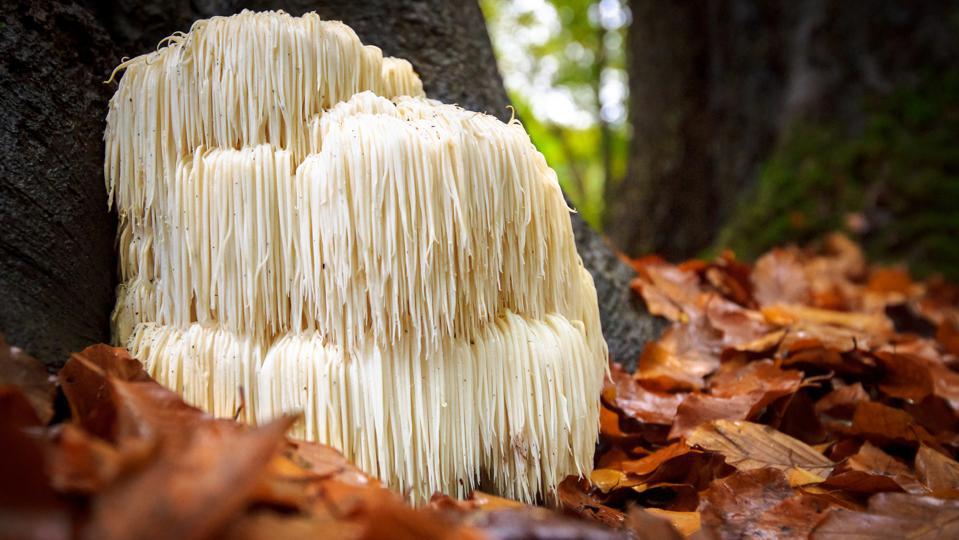In the world of natural remedies and holistic wellness, Lion's Mane mushroom has been gaining increasing recognition for its remarkable health benefits. This intriguing mushroom, with its unique appearance resembling a lion's mane, has a rich history steeped in traditional medicine and has garnered attention from modern science for its potential to support cognitive function, boost immunity, and enhance overall well-being. In this article, we will explore the fascinating history of Lion's Mane mushrooms and delve into the myriad health benefits that come with incorporating this remarkable fungi into your daily routine.
A Brief History of Lion's Mane Mushroom
Lion's Mane mushroom, scientifically known as Hericium erinaceus, boasts a long history of traditional use in Asian cultures, particularly in China and Japan. In these regions, it has been highly regarded as a medicinal mushroom for centuries.
Ancient Chinese Medicine: Traditional Chinese Medicine (TCM) holds a treasure trove of natural remedies, and Lion's Mane mushroom is no exception. It was often referred to as "Monkey Head Mushroom" or "Hou Tou Gu" in China due to its resemblance to a monkey's head, and "Lion's Mane" in Japan for its striking resemblance to a lion's mane.
In TCM, Lion's Mane was primarily used to promote digestive health, alleviate stomach-related discomfort, and support overall vitality. Ancient practitioners believed it had the power to strengthen the spleen and stomach, making it a valuable addition to various herbal concoctions and soups.
Japanese Culinary Tradition: In Japan, Lion's Mane has been integrated into the culinary culture for centuries. It is often enjoyed in various dishes, where its mild, seafood-like flavor adds depth to soups and stir-fries. These culinary traditions have allowed people in Japan to experience the mushroom's potential health benefits in their everyday diet.
Modern Scientific Interest
While Lion's Mane has been cherished in traditional medicine, modern science has uncovered a wealth of health benefits associated with this remarkable mushroom. Recent studies have shed light on its potential to support brain health, boost immunity, and offer a wide range of other advantages.
Health Benefits of Lion's Mane Mushroom
Cognitive Enhancement
One of the most widely acclaimed benefits of Lion's Mane mushroom is its potential to enhance cognitive function. This mushroom contains compounds known as hericenones and erinacines, which have been found to stimulate the production of nerve growth factor (NGF). NGF plays a crucial role in the growth, maintenance, and survival of nerve cells, making it vital for brain health.
- Memory and Focus: Lion's Mane has shown promise in improving memory and focus. A study published in the Journal of Biological Chemistry in 2009 found that hericenones extracted from Lion's Mane mushroom significantly increased NGF production, suggesting its potential for neuroprotection and cognitive enhancement.
- Neuroprotection: The NGF-promoting properties of Lion's Mane may help protect against age-related cognitive decline and neurodegenerative diseases like Alzheimer's and Parkinson's. It may also aid in the recovery of nerve damage caused by injury or disease.
- Mood and Mental Health: Some research suggests that Lion's Mane may have mood-regulating properties and could potentially help alleviate symptoms of depression and anxiety. While more studies are needed in this area, the preliminary findings are promising.
- Nervous System Support
In addition to its cognitive benefits, Lion's Mane mushroom may support the overall health of the nervous system.
- Nerve Regeneration: The NGF-stimulating effects of Lion's Mane may aid in nerve regeneration, making it a potential therapeutic option for those recovering from nerve injuries or conditions affecting the nervous system.
- Reduced Inflammation: Chronic inflammation is linked to various neurological conditions. Lion's Mane has been found to possess anti-inflammatory properties that may help reduce inflammation in the nervous system, potentially mitigating the risk of neurological disorders.
- Immune System Boost
A strong immune system is essential for overall health, and Lion's Mane mushroom may contribute to its enhancement.
- Enhanced Immune Response: Research suggests that Lion's Mane can boost the production of immune cells, such as macrophages and T cells, which play a crucial role in defending the body against infections.
- Antioxidant Properties: Lion's Mane is rich in antioxidants, including beta-glucans and polysaccharides, which help neutralize harmful free radicals. This antioxidant activity may contribute to a stronger immune system and overall well-being.
- Gastrointestinal Health
Traditional Chinese Medicine has long used Lion's Mane for its potential benefits in digestive health, and modern research supports these claims.
- Digestive Support: Lion's Mane may help promote a healthy gut by supporting the growth of beneficial gut bacteria. This can aid in digestion and may contribute to overall gastrointestinal well-being.
- Gastric Ulcer Prevention: Some studies suggest that Lion's Mane extracts could help prevent gastric ulcers and protect the stomach lining from damage caused by factors like stress and certain medications.
- Cardiovascular Health
Maintaining a healthy cardiovascular system is crucial for overall well-being, and Lion's Mane may offer some heart-protective benefits.
- Cholesterol Regulation: Research indicates that Lion's Mane may help regulate cholesterol levels by reducing LDL (bad) cholesterol and triglycerides, which are risk factors for heart disease.
- Blood Pressure Management: Preliminary studies suggest that Lion's Mane could have a mild hypotensive effect, potentially aiding in blood pressure management.
- Anti-Cancer Properties
Emerging research has explored the potential anti-cancer properties of Lion's Mane mushroom.
- Tumor Suppression: Some studies on animal models have shown that Lion's Mane extracts may inhibit the growth of cancer cells, particularly in breast and colon cancer.
- Apoptosis Induction: Lion's Mane may promote apoptosis, a process by which damaged or abnormal cells are programmed to self-destruct. This is a crucial mechanism for preventing the proliferation of cancerous cells.
- Antioxidant and Anti-Inflammatory Effects
The antioxidant and anti-inflammatory properties of Lion's Mane mushroom extend beyond their immune-boosting benefits.
- Arthritis Relief: Lion's Mane may help alleviate symptoms of arthritis by reducing inflammation in the joints. This can lead to decreased pain and improved mobility for individuals suffering from arthritis.
- Oxidative Stress Reduction: By combating oxidative stress, Lion's Mane may play a role in preventing chronic diseases associated with oxidative damage, such as diabetes and heart disease.
How to Incorporate Lion's Mane Mushroom into Your Diet
With all these potential health benefits, you might be wondering how to include Lion's Mane mushroom in your daily routine. Here are some popular methods:
- Dried Mushroom: You can find Lion's Mane mushrooms dried and use them in soups, stews, or stir-fries. Simply rehydrate them in warm water before cooking.
- Supplements: Lion's Mane supplements, available in various forms like capsules, powders, and tinctures, offer a convenient way to incorporate this mushroom into your daily regimen. Be sure to follow the recommended dosage instructions on the product label.
- Lion's Mane Coffee: Some companies offer Lion's Mane-infused coffee or coffee blends that combine the mushroom's benefits with the energy-boosting effects of caffeine.
- Tinctures: Lion's Mane tinctures are concentrated

